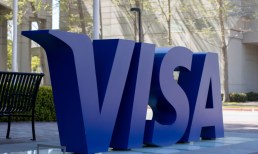“We’re excited to work with Brain Corp in supporting our retail operations and providing our associates with a safe and reliable technology,” said John Crecelius, Walmart’s VP of Innovations, in a press release. “BrainOS is a powerful tool in helping our associates complete repetitive tasks, so they can focus on other tasks within [their] role and spend more time serving customers.”
Brain Corp’s BrainOS platform now automates more than 100 of Walmart’s fleet of commercial floor scrubbers across the country, providing autonomous navigation and data collection capabilities connected to a cloud-based reporting system. The retail giant expects to have 360 AI-enabled robots in stores by the end of its fiscal year, Jan. 31, 2019.
The BrainOS-powered floor scrubbers enable Walmart associates to map a route during an initial training ride, then press a button to activate autonomous cleaning. The robot uses multiple sensors to scan its surroundings for people and obstacles, so it can carry out its work safely.
“We are thrilled to partner with Walmart to enhance customer experience at its retail locations,” said Dr. Eugene Izhikevich, CEO of Brain Corp. “BrainOS technology allows robots to effectively and safely function in complex, crowded environments, ensuring increased productivity and efficiency across applications. We look forward to continuing to work alongside Walmart to help build intelligent, connected stores.”
This is the latest AI-related announcement from Walmart. Earlier this month, the retailer announced it was planning to bring an Intelligent Retail Lab to one of its stores in Long Island, New York, to experiment with customer and associate experiences. While the lab hasn’t officially launched, Walmart has reportedly been busy installing software, hardware and equipment needed for the project.
Advertisement: Scroll to Continue
Last year, Walmart Labs’ Vice President of Engineering Laurent Desegur explained that the company was using machine learning to provide faster shipping via associated deliveries and improved personalization for its customers.

 Add as Preferred Source
Add as Preferred Source



